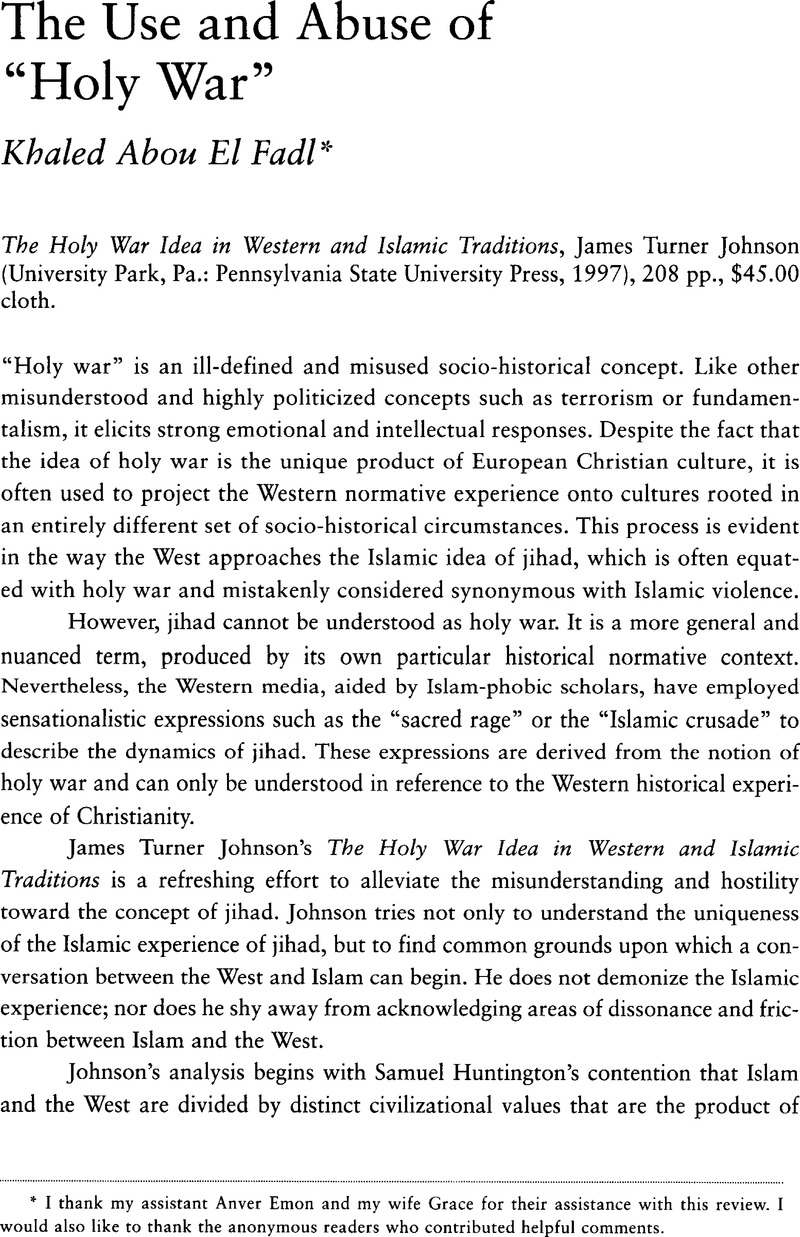Article contents
The Use and Abuse of “Holy War”
Published online by Cambridge University Press: 28 September 2012
Abstract

- Type
- Review Essays
- Information
- Copyright
- Copyright © Carnegie Council for Ethics in International Affairs 2000
References
1 El Fadl, Khaled Abou, “Islamic Law and Muslim Minorities: The Juristic Discourse on Muslim Minorities from the Second/Eighth to the Eleventh/Seventeenth Centuries,” Islamic Law and Society 1 (1994), p. 161Google Scholar.
2 See ibid., pp. 157–61Google Scholar.
3 El Fadl, Khaled Abou, “The Rules of Killing at War: An Inquiry into Classical Sources,” The Muslim World 59 (1999), p. 150Google Scholar.
4 Several contemporary Muslim scholars have argued that offensive jihad is fundamentally inconsistent with Islamic morality. See Zahra, Muhammad Abu, “Nazariyat al-Harb fi al-Islam,” Revue egyptienne du droit Int'l, 14:1Google Scholar; Shaltut, Mahmud, al-Islam wa al-'Ilaqat al-Dawliya (Cairo: Al-Majlis al-A'la lil-Su'un al-Islamiyah, 1951), p. 38Google Scholar; Mahmassani, Sobhi, “The Principles of International Law in the Light of Islamic Doctrine,” in Recueil Des Cours (Hague: Academic de droit international, 1966Google Scholar), Tome 117: 201–328; Qureshi, M. M., Landmarks of Jihad (Lahor: Sh. Muahammad Ashraf, 1971), pp. 4–8Google Scholar; and Osman, Fathi, Sharia in Contemporary Society: The Dynamic of Change in Islamic Law (Los Angeles: Multimedia Vera International, 1994), p. 62Google Scholar.
5 There are some secondary sources that Johnson apparently did not use that could have been quite informative. For instance, Hamidullah, Muhammad, The Muslim Conduct of State (Lahore: Sh. Muhammad Ashraf, 1977Google Scholar); and Mahmassani, “Principles of International Law in the Light of Islamic Doctrine.”
6 See El Fadl, Abou, “Rules of Killing at War,” pp. 144–49Google Scholar.
7 Ibid., pp. 151–55Google Scholar.
- 1
- Cited by


